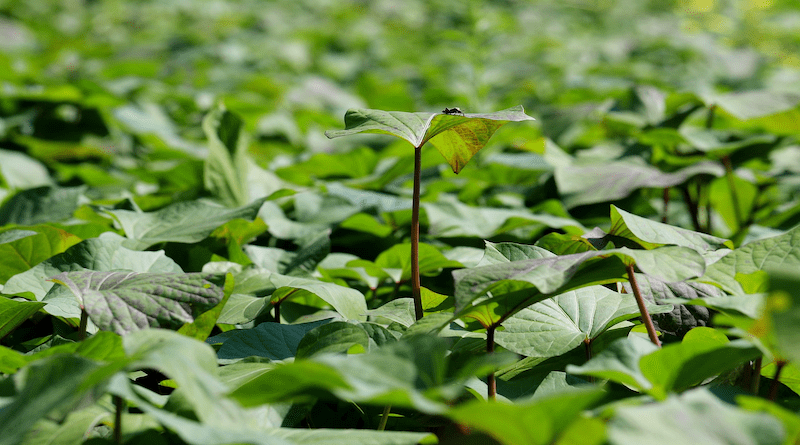Seeking Ways To Boost Organic Sweet Potato Yields
In an article featured in the journal Weed Science, researchers from the University of Arkansas describe recent field studies that explore whether cultivar selection and the use of winter cover crops can make a difference in sweet potato yields.
The team compared four sweet potato cultivars: Heartogold, Bayou Belle 6, Beauregard 14 and Orleans. They evaluated how each cultivar performed when grown in rotation with crimson clover plus either cereal rye or winter wheat) or when planted in fallow fields. Some plots were hand-weeded while others were not.
The study led to several key findings:
- On average, sweet potato yields were reduced by 60 to 80 percent in fields that weren’t weeded, with jumbo sweet potatoes most affected by weed pressure.
- Cover crop biomass was positively correlated with both lower weed biomass and increased yields. Cereal rye plus crimson clover performed better than the winter wheat plus crimson clover mixture and the fallow plots with no cover crop.
- Crop canopy height and vine length were not a factor in weed suppression, regardless of the variety of sweetpotato planted. Vine length was, however, positively correlated with improved yields.
- Bayou Belle 6 had the longest vines at five weeks and eight weeks after transplanting, and it was the top-yielding cultivar under both weed-free and weedy conditions.
“It is clear from our study that organic sweetpotato growers can improve yields when they add winter cover crops to their integrated weed management program and select top-performing cultivars,” says Isabel Werle, a member of the University of Arkansas research team. “The same findings can also benefit growers using conventional production systems since there are a limited number of registered herbicides to support weed management in sweetpotatoes.”

